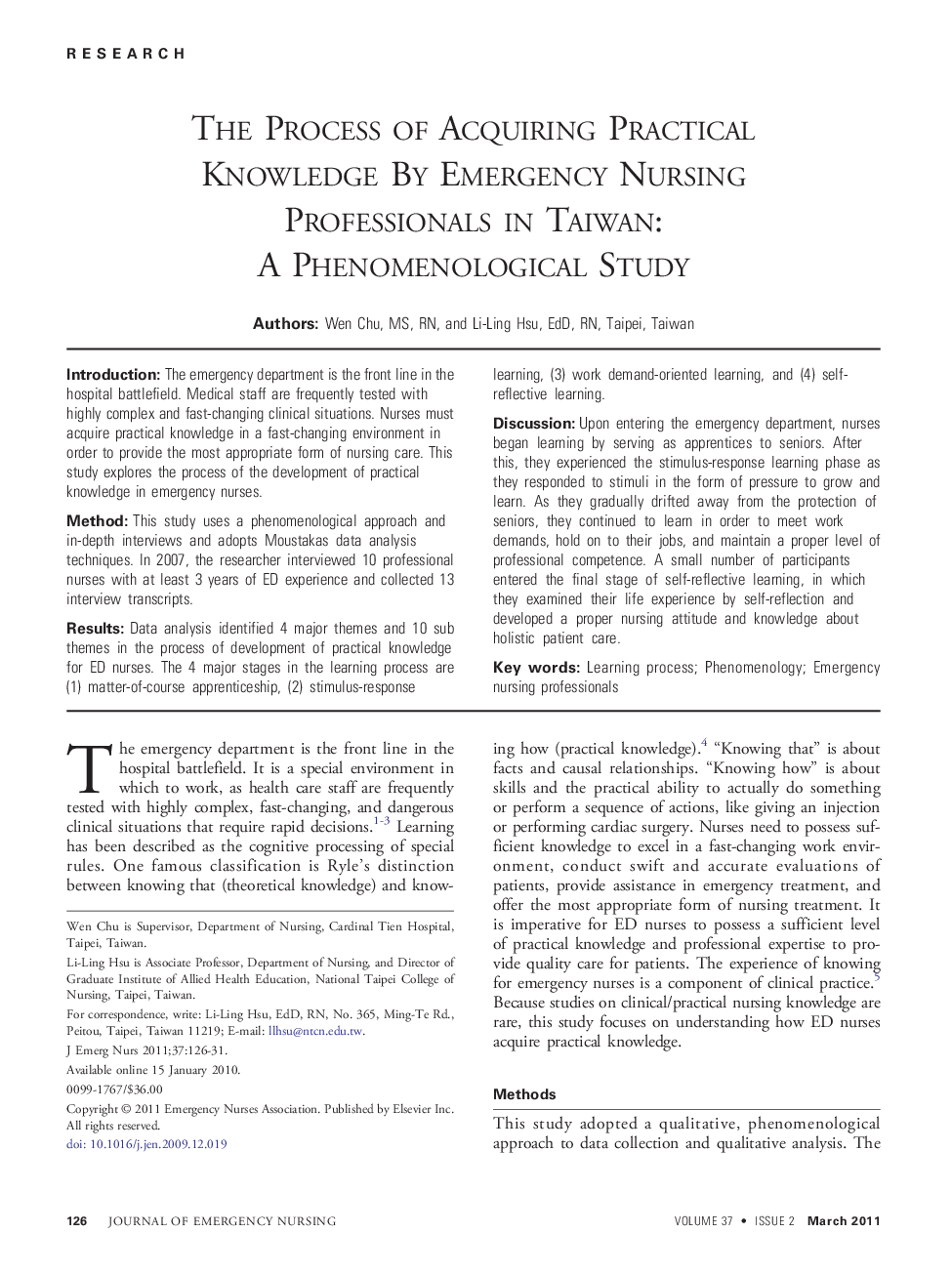| Article ID | Journal | Published Year | Pages | File Type |
|---|---|---|---|---|
| 2610482 | Journal of Emergency Nursing | 2011 | 6 Pages |
IntroductionThe emergency department is the front line in the hospital battlefield. Medical staff are frequently tested with highly complex and fast-changing clinical situations. Nurses must acquire practical knowledge in a fast-changing environment in order to provide the most appropriate form of nursing care. This study explores the process of the development of practical knowledge in emergency nurses.MethodThis study uses a phenomenological approach and in-depth interviews and adopts Moustakas data analysis techniques. In 2007, the researcher interviewed 10 professional nurses with at least 3 years of ED experience and collected 13 interview transcripts.ResultsData analysis identified 4 major themes and 10 sub themes in the process of development of practical knowledge for ED nurses. The 4 major stages in the learning process are (1) matter-of-course apprenticeship, (2) stimulus-response learning, (3) work demand-oriented learning, and (4) self-reflective learning.DiscussionUpon entering the emergency department, nurses began learning by serving as apprentices to seniors. After this, they experienced the stimulus-response learning phase as they responded to stimuli in the form of pressure to grow and learn. As they gradually drifted away from the protection of seniors, they continued to learn in order to meet work demands, hold on to their jobs, and maintain a proper level of professional competence. A small number of participants entered the final stage of self-reflective learning, in which they examined their life experience by self-reflection and developed a proper nursing attitude and knowledge about holistic patient care.
